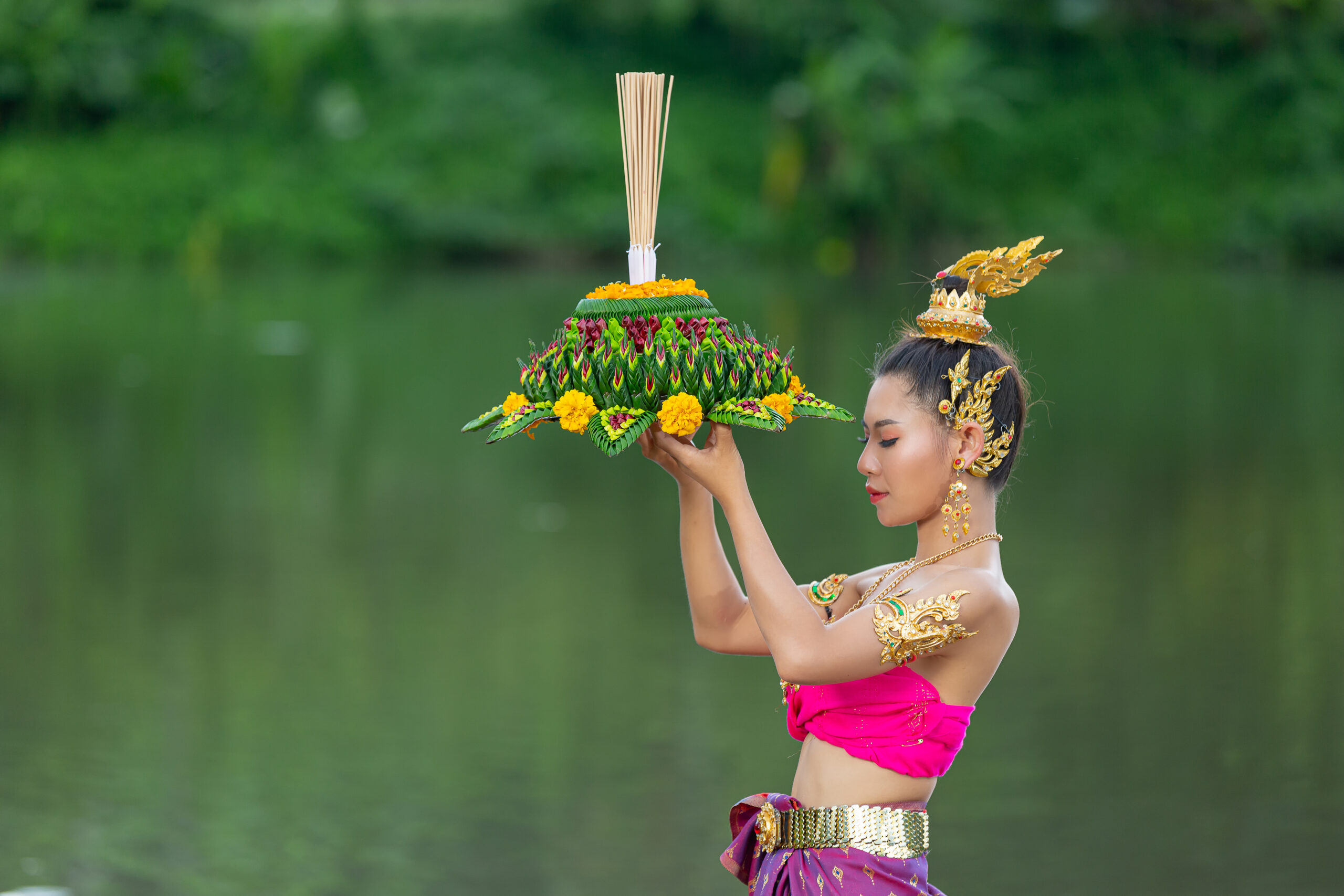Songkran Festival: A Splash of Tradition and Fun!
The Songkran Festival, Thailand’s traditional New Year celebration, is more than just a water fight—it’s a vibrant mix of history, culture, and renewal. Originating from ancient Hindu spring festivals in India, Songkran has evolved into a uniquely Thai celebration that marks the start of a fresh year and new beginnings . Over the centuries, it has blended ancient rituals with local customs, making it an essential part of Thai cultural heritage.
At the heart of Songkran is the iconic water splashing. What may seem like playful fun is actually a symbolic act of purification, washing away bad luck and starting the new year fresh . Traditionally, people gently pour water over the hands of elders and monks, seeking blessings for the year ahead. Visiting temples for merit-making activities, such as offering food to monks and building sand pagodas, adds a spiritual dimension to the celebrations, emphasizing renewal, respect, and community spirit .
Modern Songkran has taken on a life of its own, with lively water fights becoming the festival’s hallmark, especially in cities like Bangkok and Chiang Mai . Armed with water guns and buckets, locals and tourists alike turn the streets into joyful battlegrounds, filled with laughter and camaraderie. The festival has also embraced modern elements, like concerts, parades, and beauty pageants, creating a dynamic blend of tradition and contemporary celebration. Whether you’re after the spiritual or the splashy, Songkran offers something for everyone!
Loy Krathong Festival: Floating Wishes and Magic
Loy Krathong, one of Thailand’s most enchanting festivals, is a magical night where rivers and canals glow with floating krathongs—small, beautifully decorated baskets carrying candles, flowers, and prayers. Rooted in Thai mythology and Hindu beliefs, Loy Krathong is a time to honor the river goddess Phra Mae Khongkha, asking for forgiveness for polluting the waters . Symbolically, releasing a krathong represents letting go of past grievances and misfortunes, making way for a fresh start.
Crafting and floating krathongs is more than just a pretty tradition—it’s an act of worship and respect for the water spirits. The festival is also filled with lively entertainment, including traditional dances, music performances, and beauty contests like the “Noppamas Queen Contests,” celebrating the grace and elegance of Thai women . The festive atmosphere is one of joy, community, and cultural pride.
What makes Loy Krathong even more special is how it’s celebrated differently across Thailand. In Chiang Mai, the festival coincides with Yi Peng, where thousands of lanterns light up the sky in a breathtaking display . In Sukhothai, believed to be the birthplace of Loy Krathong, you’ll find dazzling historical park displays and light shows that highlight the ancient roots of the festival. Each region adds its own unique flavor to Loy Krathong, making it a nationwide celebration of beauty, spirituality, and tradition.
Makha Bucha Day: A Day of Reflection and Merit
Makha Bucha Day is a deeply spiritual holiday that commemorates an extraordinary event in Buddhist history: the spontaneous gathering of 1,250 monks to receive teachings from the Buddha . Celebrated on the full moon of the third lunar month, this day holds profound religious significance in Thailand, where Theravada Buddhism has been practiced for centuries. It serves as a reminder of the Buddha’s teachings and the enduring impact of Buddhism on Thai culture and society.
On Makha Bucha Day, temples across Thailand come alive with candlelit processions known as “Wian Tian.” Devotees walk clockwise around temples three times, holding candles, incense, and flowers in a ritual that honors the Three Jewels of Buddhism: the Buddha, the Dharma (teachings), and the Sangha (monastic community) . Other merit-making activities include offering food to monks, attending Dharma talks, and practicing meditation. These ceremonies not only deepen one’s spiritual connection but also foster a sense of community and shared purpose.
Makha Bucha Day is more than just a religious observance—it’s a reflection of how deeply Buddhism influences Thai culture. The holiday’s emphasis on mindfulness, ethical conduct, and community engagement echoes through Thai society, reinforcing values that have shaped the nation for centuries . It’s a day for reflection, renewal, and reinforcing the bonds that connect people to their faith and each other.
Embrace Thai Traditions!
Thailand’s traditional holidays are more than just festive events—they’re living expressions of the country’s rich cultural heritage and communal spirit. From the joyous water splashing of Songkran to the serene beauty of Loy Krathong and the spiritual reflections of Makha Bucha Day, these celebrations offer a glimpse into the heart of Thai culture. Whether you’re joining in the festivities or simply observing the customs, experiencing Thailand’s traditional holidays is a journey into the soul of this beautiful and diverse nation.











